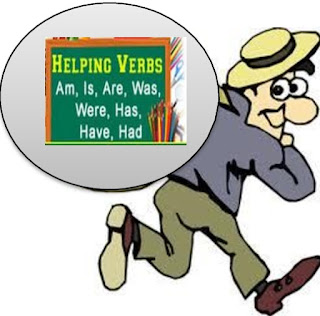Lesson Plan of Helping Verbs English Grade V

Lesson Plan of Helping Verbs English Grade V Students’ Learning Outcomes · Demonstrate the use of be, do and have as main and helping verbs in sentences. Information for Teachers · Helping verbs help the main verb describe action that happened in the past, is happening in the present, or will happen in the future. · Main verbs have meaning on their own (unlike helping verbs). There are thousands of main verbs. Such like: watch, clean, see, run, speaks, divide, collect, copy, construct, etc. · Helping verbs are also called “auxiliary verbs”. We usually use helping verbs with main verbs. They “help” the main verb (which has the real meaning). · Helping verbs ('auxiliary verbs') have no meaning on their own · ...
